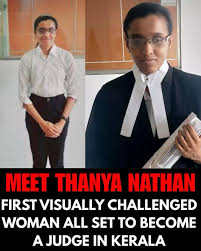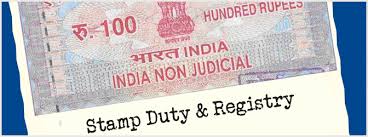Subba Rao, C.J.@mdashS.C.C.M.P. Nos. 5759 and 5760 of 1955. These are applications by defendants 1 and 2 to 6 in O. S. No. 100 of 1954 for leave to appeal to the Supreme Court against the judgment of this Court D/- 11-4-1955.
2. In a suit for partition between the members of a Zamindari family, who are parties to the appeal, an application was made in the Court of the Subordinate Judge for the appointment of a Receiver. The learned Subordinate Judge, while refusing to appoint a Receiver for taking possession of the entire properties of the family, appointed a Receiver for a limited purpose, namely, to take proper steps in getting ryotwari pattas for all the kamatham lands of the family.
The plaintiffs filed C. M. A. No. 51 of 1955 against that order, while the defendants filed cross-objections. In our order, we agreed with the learned Judge that a Receiver need not be appointed in respect of the entire properties. To safeguard the interests of the plaintiff, we gave further directions to the Receiver in slight modification of the order of the Subordinate Judge. Shortly stated, we directed the Receiver appointed by the Subordinate Judge to sell the produce and deposit the proceeds into Court, allowing the defendants at the same time to draw out their admitted share of the proceeds so deposited.
Subsequently, the appeal was posted to be spoken to and practically with the consent of the Learned Counsel appearing on either side and, indeed, on the suggestions of one or other, we made further modifications. These applications are filed to prefer an appeal against the said order.
3. From the aforesaid facts, it is manifest that we did not purport to decide finally the rights of the parties. The order was only an interlocutory order giving certain directions pending disposal of the partition suit now pending in the Court below. The question is whether an appeal lies to the Supreme Court against that order under Art. 133(1) of the Constitution of India, which reads:
An appeal shall lie to the Supreme Court from any judgment, decree or final order in a civil proceeding of a High Court in the territory of India if the High Court certifies.
4. The Madras High Court consisting of Horwill and Balakrishna Aiyyar JJ. in
In English Courts the word ''judgment is used in the same sense as a decree in the CPC and it means the declaration or final determination of the rights of the parties in the matter brought before the Court........According to the definition given in the CPC a judgment is the statement of reasons given by a Judge on which a decree or order is based. If the order which is made in this case is an interlocutory judgment and the collection of the words ''judgment, decree or final order'' in S. 205(1), Government of India Act, makes it clear that no appeal is provided for against an interlocutory judgment or order.
5. Subsequently, a Division Bench of this Court in Mangaraju v. Varahalamma, 1956 AP 47 (AIR V 43) (C) held that an order made in an appeal filed against the order directing the appointment of a Receiver was not a final order within the meaning of Art. 133 of the Constitution of India on the ground that that order did not finally decide the rights of the parties. Following the aforesaid three decisions, we hold that the order now in question is neither a judgment nor a final order within the meaning of Art. 133(1) of the Constitution of India and, therefore, the applications are not maintainable.
6. The applications are, therefore, dismissed with costs.
7. C. M. Ps. 5761 and 5763 of 1955: These are applications for stay of further proceedings on the file of the Court of the Subordinate Judge, Vijayawada in pursuance of the judgment in C. M. A. No. 51 of 1955 pending disposal of the applications for leave to appeal to the Supreme Court. As we have dismissed the applications for leave, it follows these applications are also liable to be dismissed and we accordingly do so. It is said that the parties intend to apply for special leave but in our view, and having regard to the circumstances of the case, we do not think these are fit cases for exercising our extraordinary powers to give interim stay. The parties will, if so advised take appropriate steps in the Supreme Court itself. The applications fail and are dismissed with costs.
8. C. M. P. Nos. 6083 and 6084 of 1955: In view of our order in S. C. C. M. Ps. Nos. 5759 and 5760 of 1955, these applications are not pressed. They are dismissed with costs.

